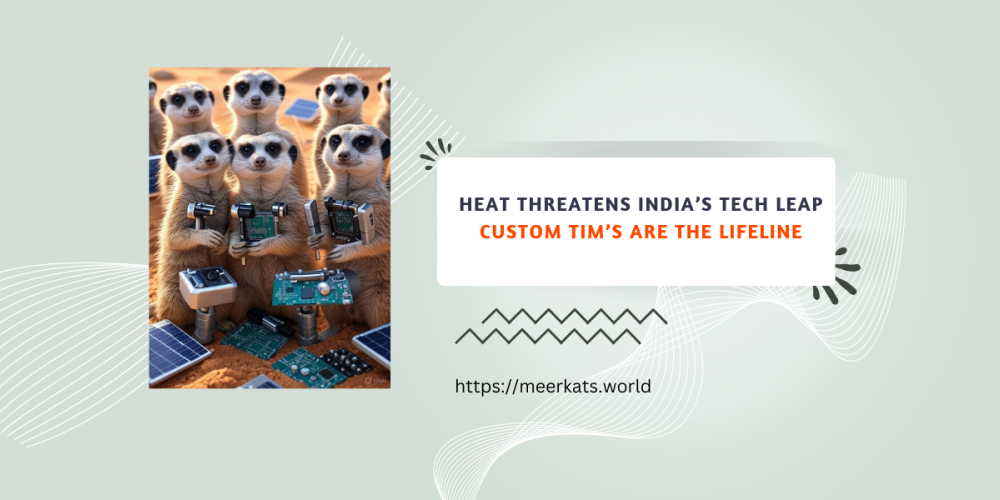- Professor
- Jul 27, 2025
- Deeptech India
Why the Most Overlooked Component in Electronics Could Be the Key to a Greener, Faster Future
For years, the electronics industry obsessed over faster chips, cutting-edge interconnects, and advanced cooling systems. But the one component sitting quietly between your chip and cooler the thermal interface material (TIM) - barely evolved.
TIMs, those thin layers of paste, pa...
Read more- Professor
- Jul 13, 2025
- Deeptech India,
- Electronics Manufacturing,
- Make in India,
- Thermal Management
Heat Is Stalling India’s Tech Leap-Custom TIM's Are the Hidden Enabler
India’s tech future is at risk due to poor thermal management. Custom thermal interface materials (TIMs) dramatically boost device performance, extend lifespan, and reduce e-waste. Discover how engineered TIMs are critical to advancing EVs, 5G, data centers, and clean energy infr
Read more- Aashish
- Feb 12, 2025
- Knowledge Gainer
From Thought to Reality: The Power of Acting on Ideas
Turning an idea into reality requires more than just thinking—it demands action. In the journey of innovation, success isn’t found in perfection but in the willingness to start, adapt, and learn along the way. This is the mindset that led to the creation of CV22, our breakthrough...
Read more- Aashish
- Dec 17, 2024
- Knowledge Gainer
Why We Chose 'Meerkats' for Our Vision
As the founder of Meerkats.World, I’m often asked why we chose "Meerkats" as our company name. The answer lies in the lessons these small, social creatures teach us. From their teamwork, resilience, and adaptability in the harshest environments, we’ve drawn inspiration for how we...
Read more- Professor
- Nov 30, 2024
- Knowledge Gainer
A Glimpse into the Future: AI, Machine Learning, and Nanotech Integration in the Evolution of Thermal Management
What happens when AI, machine learning, and nanotechnology converge? The future of smart devices and IoT will be revolutionized by innovations in thermal management, particularly with CV22 metallic thermal interfaces. Dive into how these technologies will reshape the landscape of
Read more- Aashish
- Nov 23, 2024
- Knowledge Gainer
Energy Savings with CV22 Nanoscience
Discover how optimizing thermal management with advanced thermal interfaces can boost CPU efficiency and reduce energy consumption. Read on to explore how temperature optimization can revolutionize task execution and energy savings in modern computing.
Read more















